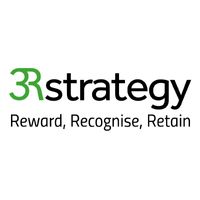Why praise and appreciation are worth more than a pay rise

Plus, recognition works both ways: it is not only motivating for the recipient, but for the giver, too. It feels good to praise and acknowledge someone else’s success.
Investing in engagement
Although giving pay rises when they’re due is important, a small investment in employee recognition goes much further.
For instance, if your organisation allocated 0.2% to 0.3% of its payroll to an employee recognition budget, this could have a significant impact on engagement. Because when we adopt effective employee recognition programmes, we reinforce and encourage desired behaviours. And not only does it boost engagement, recognition is also a more cost-effective way to motivate people.
Say your 0.3% payroll budget was used to bump up someone’s pay; it would have a negligible impact on their base salary, particularly after tax is deducted. Plus, there’s the fact that people also tend to be less motivated by cash incentives than other forms of recognition.
Effective recognition
Knowing what recognition is and how to implement it is vital for long-term engagement. Fundamentally, it boils down to four key elements: specific, timely, meaningful and genuine.
- Specific: A general statement about how great someone is won’t be helpful in the long-run. It’s best to praise particular actions, or how they handled a difficult situation.
- Timely: This is probably the most important element. Immediate recognition will have a much greater impact than saving up remarks for an annual or bi-annual review.
- Meaningful: Being recognised by senior colleagues matters to people. A survey by Think Money found that employees were three times more likely to remember praise from their direct manager, and more than twice as likely to recall it from a senior executive or the CEO than from their peers.
- Genuine: Showing genuine appreciation is not just about showing that you care about the performance and achievements of your people, but also about their emotional wellbeing.
A unified approach
As well as incorporating the key elements above, recognition programmes work best when they complement the organisation’s values, the types of people who work there, the industry and the company culture.
Some companies choose to publish employees of the month or employee of the year for all to see. Others give out quarterly awards, with gifts ranging in monetary value according to the level of achievement.
Whichever recognition approach you take, it needs to match your company’s values and culture. And remember: when you’re celebrating an individual’s success, it’s best to make the recognition personal. While some enjoy the limelight, others dislike public displays and might prefer to be mentioned in the company newsletter instead.
Companies should aim to be consistent too. Often, when there is no company-wide strategy in place, different departments will set up and manage their own recognition programmes. The problem with this fragmented approach is that it can dampen the overall impact of recognition across the organisation.
Making praise the norm
Leadership teams should create a coherent recognition policy that works across multiple locations as needed. It should also cater for different types of people and how they like to be recognised.
While it can be tricky to get right, the most engaged workforces often have a culture of recognition, where informal praise and acknowledgement is the norm. This could be anything from saying a quick thank you after a productive meeting, to applauding someone via email and copying in their manager.
It’s great to have formal recognition programmes with monthly, quarterly or annual awards for achievements or behaviours. Ultimately, though, it’s the everyday, spontaneous conversations that will make the biggest difference.
This article is provided by 3R Strategy.
Supplied by REBA Associate Member, 3R Strategy
We help you attract and retain your people through a fair and equitable approach to pay and reward.







